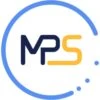Every self-respecting business owner, at some point, thinks of improving employees\' knowledge, mastery, and confidence. They may already succeed in creating an eLearning platform for corporate training. However, it still needs constant updating to keep the staff up with time and deliver the most relevant data. While developing online lessons is a lengthy process requiring experience and tech power, distributing tasks can become the only solution for companies searching for quick and efficient results.
In this guide, we’ll uncover the benefits of third-party assistants in diversifying LMS courses and learn what processes they can fulfill.
Why Outsource Interactive Features for Your LMS?
There’s no standard answer on who and when should delegate the eLearning content development process to the third force. Everything depends on the corporate objectives and unique business requirements. Still, several key factors can demonstrate that the enterprise calls for additional help with this task:
- an enterprise lacks the staff or knowledge to complete a project in-house;
- there is a high necessity for fast and qualitative educational content in a short time;
- an existing LMS requires scaling and innovative technologies implementation;
- the organization wants a cost-effective solution without quality loss.
ELearning projects outsourcing can bring multiple advantages for corporations, like access to expert ideas, data-driven solutions, cost-efficiency, and product scalability. Let’s get familiar with them in more detail.
Highly specialized personnel
Outsourcing eLearning content development to experts allows companies to leverage the proficiency and experience in a specific niche their employees don’t have. Third-party contractors may have in-depth skills and years of practice in the areas your in-house team has not yet dealt with. There is also a high chance experts on the side have already worked with similar projects and shared cases of successfully incorporated platforms. Being on the wave of the latest Edtech trends and achievements, they may help to source your LMS with the most relevant data and suitable formats.
Fast delivery of features
An eLearning outsourcing company commonly has a quick turnaround, meaning it can finish small or medium-sized development processes faster than internal workers. Moreover, you may not worry about deadlines because reputable services will implement all the essential features within a strictly defined working schedule. Delegating content creation to specialized services with a vast set of innovative approaches and competencies, your business can center the attention on other essential tasks, like marketing, and boost the enterprise\'s overall productivity.
Optimal cost of services
While some business owners may think that outsourcing custom eLearning content development is an expensive investment, it can be more cost-effective compared to hiring full-time in-house staff. Partnering with third-party services, you may acquire expert help when there is a need to get fast and qualitative results and put collaboration on hold when an appropriate task is completed. You only pay for the volume of work done and don’t allocate a budget for human resources, which include wages, vacation time, or health issues coverage.
Transfer Copyright Ownership
Commonly, employers request their eLearning app development partners to sign a contract saying that everything created by their teams becomes the company\'s intellectual property. Copyright ownership transfer ensures that the latter is a solo holder of the finished product. This fact remains undisputable because you pay for the work to be done and expect to possess unique content.
Adjusted work processes
To function successfully, you should focus mainly on company competencies and objectives, leaving secondary tasks like eLearning content creation to outsourcing agencies. This will help you use existing resources effectively and streamline routine processes rather than trying to supervise multiple projects and gain more jobs.
In tune with the latest trends
Software providers constantly improve their knowledge and monitor state-of-the-art technological innovations to utilize them in on-demand orders. This approach helps them keep competitive advantages and receive more clients. Of course, every business should stay updated with emerging industry trends. So, eLearning content development services will not only create an efficient, top-notch product but ensure continuous improvement and skills upgrading for your employees.
Proven reliability of the contractor
Edtech organizations have adjusted algorithms to deliver world-class solutions and can become long-term trustworthy partners for your future work and corporate LMS maintenance. When choosing a company to involve in a project, you may check its successful cases, request customers’ testimonials, and ensure contractors’ qualifications, relevance, and compliance with your requirements.
Scalability of the product
One of the main advantages of outsourcing eLearning lies in convenient scaling. Expert agencies can do it faster than in-house teams. With the business growth, you may be required to give access to a large number of employees. Development services have all the necessary tools in hand to organize this process smoothly. You may need to support new technologies and integrations or make organizational changes to expand to new markets. Scaling with mediator providers, you’ll get cost-effective and efficient outcomes on time.
Incorporation into business analytics
ELearning outsourcing gives enterprises access to in-depth expertise, including data science and analytics. Instead of simply delivering educational content, your LMS can collect and examine historical data, which may enhance customer experience and foster growth. Statistics on users’ performance and behavior may help create more personalized courses, define the most efficient formats for their delivery, or predict outcomes. That, in turn, can enhance learners\' engagement and satisfaction, leading to improved knowledge retention and increasing the overall efficiency of corporate education.
Data security is guaranteed
By outsourcing eLearning, you can address data safety and confidentiality concerns. Well-defined and transparent contracts and agreements should become the roadmap to reducing security risks. Robust measures capable of protecting sensitive private information can include encryption, access control, verification, and regular audits. Ensure a potential partner provides these methods before accessing the corporate data.
Top-10 Learning Management System Trends
How does the MPS create eLearning systems?
With over ten years of practice, MPS continues to lead the way in creating business LMSs. The best proof of our expertise, transparency, and efficiency are dozens of educational apps, platforms, and satisfied clients. We\'d like to tell you more about the process of organizing a learning platform and share some insights.
The technical team involved in the process may include:
- project manager;
- front-end experts with solid knowledge in JavaScript, CSS3, HTML 5, Angular, React, etc.;
- back-end developers trained in PHP, Python, Java, Ruby, PostgreSQL, Apache, and others;
- UI/UX designers;
- Android/iOS mobile app experts;
- business analysts.
It\'s up to you to decide whether to outsource the entire process or hire a few technical engineers. The cost of eLearning content development depends on the scope of work and system capabilities.
First, the team analyzes business goals and requirements. Then, we define LMS features and complexity. UX/UI specialists help to create a user-friendly responsive interface with the brand\'s logo, color theme, and typography, ensuring a pleasant user experience.
The development phase starts with prototyping and building a Minimum Viable Product (MVP). The first version of the solution with basic functionality is revealed to a group of users to receive their feedback and make timely adjustments. Approved by customers and fixed by the developers, MVP gains more features according to the requirements and becomes a workable product empowered by API, payment processors, and other integrations.
Before launching to the end user, the product also passes QA testing on possible glitches and bugs. When all the issues found are fixed, an Edtech platform becomes a ready-to-use product...


